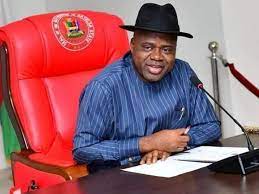Participants at the second edition of the International African Energy, Oil and Gas Summit have again called for an end to gas flaring in Africa.
The call was made via a communiqué jointly issued at the end of a five-day event; a copy of which was obtained by Blueprint in Abuja Friday.
The event, which was attended by no fewer than 240 registered conferees, was declared open by the deputy governor of Luanda, Jorge Miguêns-Augusto, representing the governor of Luanda Province, Manuel Homem.
The keynote speaker at the event was Professor Anthony Adegbulugbe, the chairman of Green Energy International Ltd., (GEIL) and a former special adviser on energy matters to former President Olusegun Obasanjo, who was represented by Prince (Barr) Olusegun Ilori, a board member and director at GEIL.
Goodwill messages were received from the president of the African Development Bank, Dr. Akinwumi Adesina; Governor Dikko Umar Radda of Katsina state, represented by the deputy governor, Dr. Lawal Faruk, among others.
The event organised by African Peace Magazine Ltd., had in attendance the chairman and editor-in-chief of the magazine, Justice Suleiman Galadima (retd.) and Mr. Noah Ajare.
The communiqué reads in part, “While the world’s energy needs are growing. Like many other regions, Africa has the difficulty of striking a balance between environmental sustainability and energy needs.
“There are several requirements for a seamless energy transition. It includes the need to lessen the negative effects of climate change while promoting economic growth, ensuring energy security, and reducing carbon emissions.”
On how to achieve the goals, the stakeholders agreed that it would require embracing renewable energy sources, including biomass, solar, wind, and hydro.
“There should also be greater attention on youth employment through education and entrepreneurship skills training.
“The summit stressed the need for a smooth energy transition and the need to embrace artificial intelligence. The summit analysed the critical issue of security and it’s intertwined relationships with economic prosperity.”
The summit also resolved that that all personnel and agencies responsible for preventing, controlling, and/or cleaning up oil spills in Africa should do more.
“They should be trained and to follow the standard operating procedure. Training should be conducted annually. All spills should be documented and maintained.
“This should involve the host communities, the companies and the government.”




